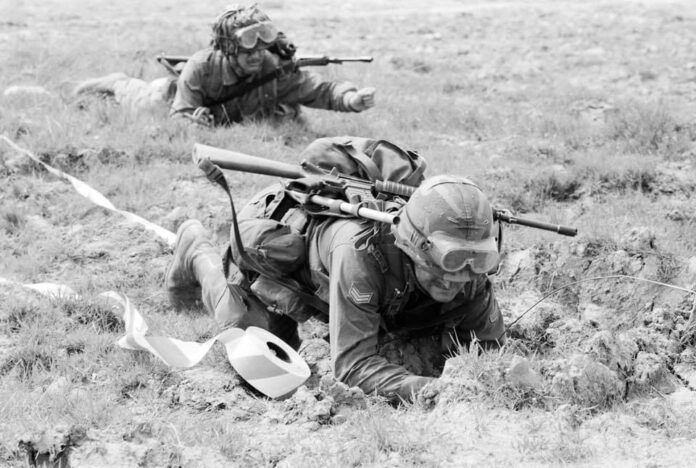An Alberta Métis veteran is sharing his concerns about the supports available to Indigenous veterans following their service to Canada.
Retired Sgt. Chuck Isaacs joined the Canadian Armed Forces in 1985 as a Combat Engineer. He has served in the former Yugoslavia, as well as Bosnia as an explosive ordnance disposal operator, minefield monitor, clearance supervisor, and section commander.
Indigenous Veterans Day was observed on Nov. 8 ahead of Remembrance Day on Nov. 11.
The retired soldier is president of the Aboriginal Veterans Society of Alberta, and sits on the National Métis Veteran Council as the representative for Alberta.
Isaacs says there is systemic racism in documenting the contribution of Indigenous soldiers beginning with the exact number of people of Indigenous heritage who served in the world wars.
While official estimates are unable to provide an exact number perhaps “well over 4000” in the case of the WWI and some 4200 in WWII, Isaacs thinks those numbers are low as he says, “the Métis Nation of Alberta on the Veterans monument at Smoky Lake, they have 2000 names of World War Two veterans from Alberta and there are another 1800 that are waiting to be put on.”
Isaacs says, “I put the number somewhere between 30,000 to 50,000 people of Indigenous heritage who served Canada in WWI and WWII. I don’t think it’s intentional that the contributions are underestimated, but I do think there is a certain amount of systematic racism that goes into telling the story of the Indigenous people.”
He adds, “the Indigenous story should be part of Canada’s story, but it is not necessarily part of the story of the people that were writing the story at the time. So they downplay the contribution.” He states further that in the unit that he served with before retirement about 30 per cent of the 400 members were Indigenous, but they would not necessarily say that openly.
When providing support services, Isaacs stresses an understanding of Indigenous culture and the importance of making personal contact when serving veterans. This contrasts with sending letters to veterans and moving services online, especially for seniors who may not have access to the internet, as well as hearing difficulties and other ailments. He lists these issues alongside grappling with mental health challenges and homelessness among veterans.
In terms of solutions, Isaacs is seeking funding to set up supports to help veterans manage the application process for government assistance. He also wants to take those solutions to veterans especially in outlying Indigenous communities.
“If Veterans Affairs was to engage us and allow us to build the capacity, we would be able to do that ourselves – Indigenous veterans serving Indigenous veterans, then the lives of the Indigenous veterans would be improved greatly, and honestly we would be helping Veterans Affairs fulfill their mandate.”
As well, Isaacs wants to have professionals like psychiatrists and social workers who can go to Indigenous communities in the north and provide needed services in these rural areas.
Isaacs concludes that through the National Métis Veteran Council network, the services can spread across the country to help Indigenous veterans.


